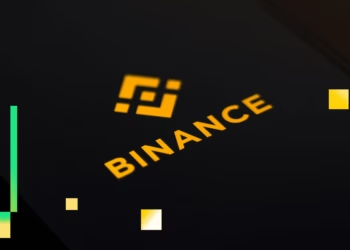Ethereum is no longer just a smart contract platform—it’s a foundational layer of the digital economy. From DeFi to NFTs, from real-world asset tokenization to Layer 2 scaling, Ethereum powers much of the on-chain activity that defines Web3.
As institutional adoption grows and supply mechanisms evolve, many are asking a key question: can ETH reach $10,000 by 2025?
In this article, we explore the conditions that could make it possible, and the risks that could hold it back.
Ethereum in 2025: Why the Conversation Has Shifted
Ethereum’s fundamentals have evolved dramatically since the last bull cycle. Following the Merge and the transition to proof-of-stake, ETH is no longer just a utility token. It’s become a yield-bearing, deflationary asset with growing institutional appeal.
The shift isn’t just technical. On-chain activity now spans real-world assets, gaming ecosystems, and enterprise use cases. At the same time, Layer 2 solutions are reducing gas costs and onboarding users at scale.
In this context, a five-digit ETH doesn’t seem as far-fetched as it once did.
Can ETH Realistically Reach $10K?
To hit $10,000, Ethereum would need to increase several-fold from its current levels. That might sound ambitious—but the mechanics offer a compelling case.
First, Ethereum now burns a portion of transaction fees. If network usage continues to climb—especially on Layer 2s that settle back on Ethereum—this burn rate could exceed issuance for extended periods, tightening supply over time.
Second, ETH staking has introduced predictable rewards for long-term holders. As more ETH is locked up and removed from circulating supply, scarcity increases—particularly during bull cycles.
Third, Ethereum’s expanding role in the tokenization of real-world assets gives it a strategic position in the next phase of blockchain adoption. Use cases tied to stablecoins, bonds, and compliance-friendly DeFi may attract institutional capital with long-term horizons.
According to Binance Research, ETH’s evolving tokenomics, combined with its settlement-layer status, could support “a high-value target under strong macro and sectoral alignment.”
Meanwhile, price models on Changelly show a forecast range that extends up to $9,700 by 2025 under favorable conditions.
These aren’t guarantees—but they are informed projections based on current trends.
What Would It Take?
A $10K ETH would require convergence across several fronts. On-chain activity must grow sustainably—not just through hype cycles, but through real adoption. Institutions must gain regulatory clarity and direct access. Layer 2s must succeed in abstracting away Ethereum’s historical bottlenecks, while still contributing value to its base layer.
Crucially, Ethereum must retain its dominant position in the smart contract space while fending off faster, cheaper competitors. Its modular roadmap and network effects provide a strong foundation, but execution remains key.
The macro environment also matters. Historically, crypto price expansions have coincided with liquidity cycles, technology narratives, and renewed retail interest. ETH’s next surge, if it comes, will likely depend on all three.
What Could Hold It Back?
Despite its strengths, Ethereum still faces challenges. Gas fees, user experience, and wallet complexity remain friction points. If L2 adoption stalls, or if users migrate to alternative chains offering better UX or lower costs, ETH could underperform expectations.
There’s also regulatory uncertainty. While Ethereum is less exposed to legal risk than many altcoins, its staking model and growing role in finance may eventually attract scrutiny. Delays in policy clarity could slow institutional inflows.
And while deflationary mechanisms are powerful on paper, their impact depends entirely on sustained demand. Without it, scarcity alone won’t move the market.
Final Thoughts: Ethereum Price Prediction 2025
Is $10,000 ETH realistic by 2025?
It’s not guaranteed—but it’s not outlandish either.
Ethereum has transitioned into a programmable asset with monetary properties. It’s earning yield, reducing supply, and settling trillions in value annually. Its roadmap, community, and infrastructure remain among the most resilient in the space.
If crypto markets expand, and Ethereum continues to serve as the digital infrastructure for the next wave of applications, a five-digit valuation could reflect that growth.
In the end, ETH’s price in 2025 won’t just be about speculation. It will be about adoption, integration, and continued relevance in a rapidly evolving ecosystem.
Ethereum Price Forecast: 2025–2028 Outlook
While the $10,000 target dominates headlines, long-term ETH forecasts tend to show a gradual, layered path—rather than a sudden parabolic spike. Based on historical trends, on-chain developments, and macro factors, here’s what a realistic trajectory might look like for Ethereum through 2028.
Ethereum Price Preditcion 2025
Ethereum could enter a new valuation range if L2 adoption continues accelerating and institutional staking demand picks up. In this context, a price range between $6,000 and $10,000 appears plausible, especially if network fees and token burns remain elevated.
Ethereum Price Preditcion 2026
Assuming Ethereum maintains its dominance in DeFi, NFTs, and RWA tokenization, this could be the year ETH consolidates in the five-digit zone. More conservative projections place it between $7,500 and $11,000, depending on macro liquidity cycles.
Ethereum Price Preditcion 2027
By this point, Ethereum may face stronger competition from modular and AI-integrated chains. However, its network effect and brand credibility could help it retain leadership. A midrange forecast sees ETH in the $9,000 to $13,000 window.
Ethereum Price Preditcion 2028
With full maturity of Layer 2 ecosystems and deeper enterprise use cases (e.g., tokenized bonds, ESG markets), Ethereum could potentially act as the settlement layer for a global on-chain economy. If this thesis holds, ETH might trade anywhere between $10,000 and $15,000—especially if broader crypto adoption continues accelerating.
These figures, while speculative, are grounded in Ethereum’s current trajectory and do not assume unrealistic market conditions. They reflect an ecosystem moving from narrative-driven growth to utility-driven value.










